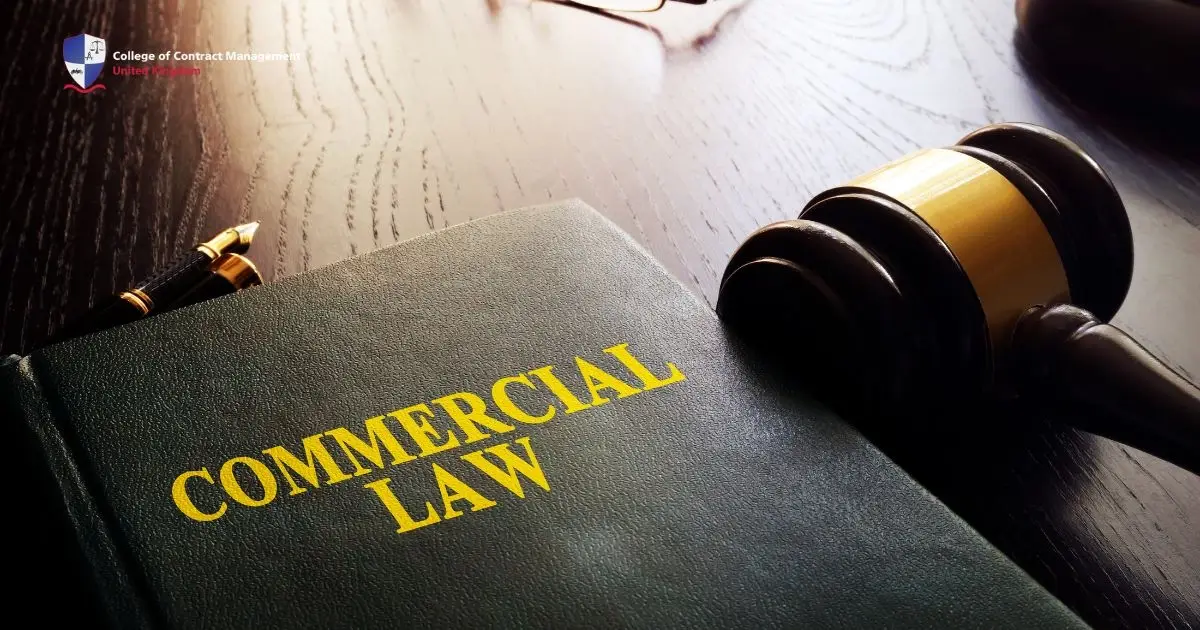In recent years, commercial law in the UK has changed a lot. These changes reflect shifts in the economy and new technology. One big change is the use of artificial intelligence (AI) in legal work. The Law Society says 96% of UK law firms now use AI. They use it for tasks like drafting documents, reviewing contracts, and searching through data. Another important change is the reform of litigation funding. The court ruled that third-party funding agreements count as damages-based agreements. As a result, there are uncertainties in law for business.
This article gives a clear explanation of commercial laws in the UK. This guide will help businesses understand the legal rules that guide their work. In addition to that, learning about business law is important for reducing risks and building trust. By doing so, companies can make smart decisions and protect themselves. Let's get into the article!
What is commercial law?
Commercial law, or business law, is the law that applies to the rights, relations, and handling of people and businesses. This law deals with legal rules that guide business activities. What makes it more interesting is that this law comes from the existing law, such as contract law. Over time, courts and lawmakers have developed it through new laws. In short, business law helps companies operate their businesses smoothly.
In the UK, commercial law plays an important role in both local and international business. Many international businesses choose to write the law in English to make it clear. Besides, UK laws like the Competition Act 1998 keep markets fair by stopping anti-competitive actions. The law system in the UK supports business and has a strong role in global trade services.
Key principles and sources of law
Understanding commercial law helps people do business with confidence. Businessmen need to know the key to this law comes from freedom of contract and legal identity. These ideas let businesses work clearly on their own. However, the law comes from different sources. For instance, the Companies Act 2006 and the Sale of Goods Act 1979. These laws work together to create a fair and useful system for businesses. At the same time, there are other sources that support this law. Here are the details:
- Companies Act 2006: The Companies Act 2006 is the main commercial law for businesses in the UK. It combines and updates old company rules to make the company law clearer and easier to follow. It also sets out what directors must do to run a business well.
- Sale of Goods Act 1979: The Sale of Goods Act 1979 sets rules for selling items in the UK. In this case, products must match their description, have good quality, and match their purpose. If sellers break these rules, buyers can take legal action.
- Competition Act 1998: The Competition Act 1998 is another important UK commercial law. It bans unfair deals between businesses. It also stops companies from misusing their market power. The goal of this law is to keep competition fair and protect consumers.
- Consumer Protection from Unfair Trading Regulations 2008: The Consumer Protection from Unfair Trading Regulations 2008 stops businesses from unfair practices. These include lying, hiding facts, and pressuring. As a result, these rules help buyers make smart decisions.
Types of commercial law
After looking at the sources of commercial law, it is important to study the types of business law. These types work together to support and control business activities. In addition to that, each area covers a different part of the business. For instance, making contracts, protecting ideas, and managing financial deals. Learning about these types gives a full picture of how business law keeps transactions fair.
In this section, we explore the types of law for business. Each type is important to improve business. Furthermore, understanding these areas helps explain how business law keeps businesses fair and orderly. In detail, we give a picture of how this law controls business activities in different sectors.
Contract Law
UK contract law ensures that courts enforce agreements effectively. To form a valid contract, parties need an offer, acceptance, payment, and the intention to create legal relations. Additionally, some contracts, like those about land, must be in writing to be valid. Moreover, commercial law sources like the Contracts (Rights of Third Parties) Act 1999 allow third parties to enforce contract terms.
Sale of Goods
The Sale of Goods Act 1979 says products sold in the UK must match their description. They must have quality and match their purpose. Besides, consumers have the right to reject faulty goods. They can also ask for repairs, replacements, or refunds. Since 1 October 2015, the Consumer Rights Act 2015 has replaced the Sale of Goods Act. This new law gives consumers stronger protections.
Agency Law
Agency law in the UK controls the agent acts for the principal. The agent can create legal duties with third parties. This commercial law comes from common law. It also includes rules like the Commercial Agents Regulations 1993. In short, this law states that agents must act "dutifully and in good faith" to both principals and third parties.
Competition Law
UK competition law comes from the Competition Act 1998 and the Enterprise Act 2002. In this case, the Competition and Markets Authority (CMA) is in charge of making sure businesses follow these laws. The body sees unfair deals, misuse of market power, and risky mergers. Recently, the Digital Markets, Competition and Consumers Act 2024 have given the CMA more power. As a result, these changes help the CMA control online markets and keep consumers safe.
Consumer Protection
Similar to the Competition Law, the UK protects consumers with the Digital Markets, Competition and Consumers Act 2024. This commercial law lets the CMA fine companies up to 10% of their global sales if they break the rules. The act clearly prohibits hidden fees, fake reviews, and subscription traps. It also allows consumers to check for buy now, pay later services.
Intellectual Property Law
Intellectual Property (IP) law in the UK protects ideas and creations. For example, inventions, designs, brand names, and art. The UK Intellectual Property Office (UKIPO) manages rights for those things. The protections include Patents that protect inventions for up to 20 years. On the other hand, Copyrights protect works for the author’s life plus 70 years. Trademarks protect logos and names. Recently, people have discussed changing copyright laws. This is because they want to fix problems on artificial intelligence and data scraping.
Dispute Resolution
Dispute Resolution in commercial law offers different ways to solve conflicts without going to court. For instance, mediation uses a neutral mediator that helps the parties solve a conflict. Arbitration uses an arbitrator to make a solution that both sides must follow. In other cases, Adjudication is for construction disputes. Finally, Litigation helps to solve conflicts in the courts.
Compliance and risk management in business law
In the UK, businesses face many complex rules. They must follow commercial law and manage risks carefully. These laws include the Bribery Act 2010, which bans bribery. In addition to that, the Criminal Finances Act 2017 targets tax evasion. Companies must also report on environmental, social, and governance (ESG) issues. Breaking these rules can lead to fines and ruin a company’s image. It can also bring more attention from regulators and investors.
To manage these challenges, UK businesses now use clear risk management plans. These plans must match their business goals. In January 2025, the government introduced the 2024 UK Corporate Governance Code that brings a “comply or explain” rule. This means companies must say if their systems work well and boards must check risks often. Besides, they also need to fix problems early.
To help companies follow commercial law and manage risks, governance in corporate plays a key role. In this case, Directors should lead the company by being honest and showing their integrity. They also need to review and update company policies regularly. They must respond right away when new risks come to the business. The new Audit, Reporting, and Governance Authority (ARGA) will help improve checks and rules. In short, strong governance builds trust and supports long-term business success.
Conclusion
In summary, commercial law is key to regulating business activities. This law sets rules that support smooth business operations. It also protects consumers, encourages competition, and helps solve disputes quickly. Understanding these laws helps businesses manage risks and build trust. It also helps them succeed in a global market. In the end, strong law keeps business fair, clear, and successful.
If you want to grow your career in law or contract management, the College of Contract Management can help. The college offers flexible online courses for professionals. These programmes teach practical and current knowledge in construction, engineering, and procurement. Whether you want to gain experience or new qualifications, the college supports your journey. As a result, you can advance your career. Ready to take the next step? Visit our website to explore your options and enrol today!





